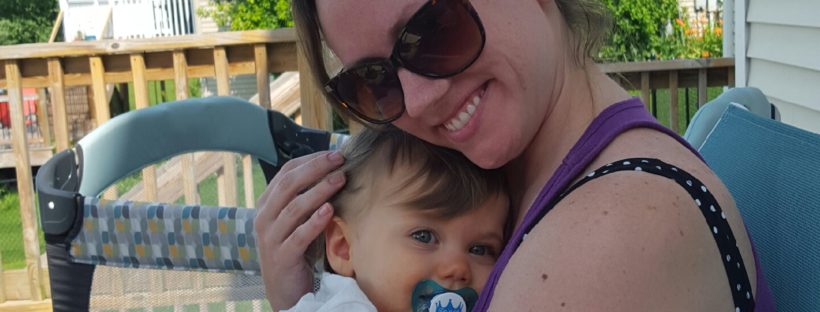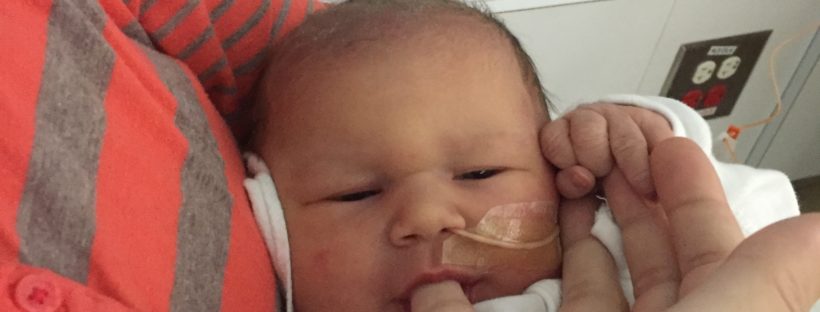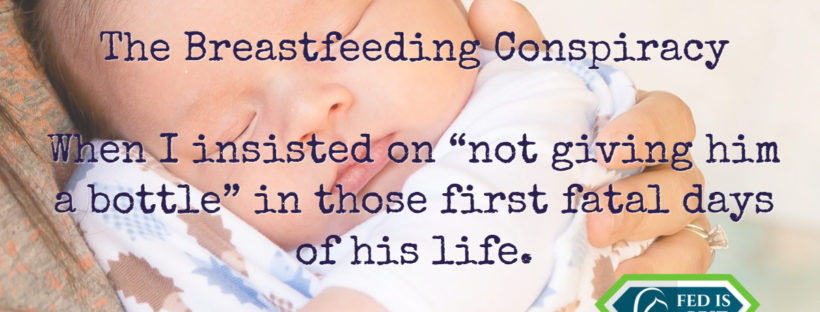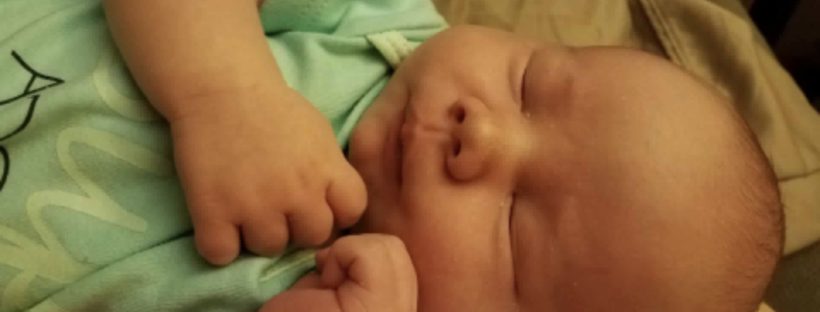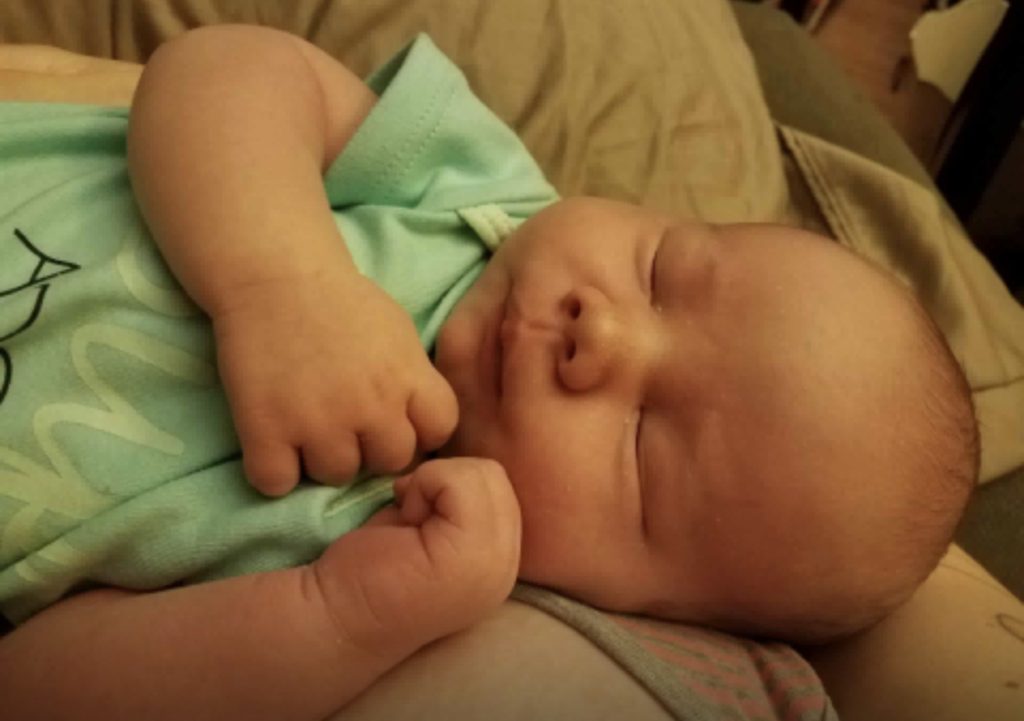Your recent article in the Huffington Post titled, “The Scary But Rare Risk Linked to Exclusive Breastfeeding,” is yet another example of the untruthful and unethical promotion of exclusive breastfeeding as an all-benefit, no-risk choice for mothers. The hiding of the common and dangerous complications of the Baby-Friendly protocol including the risks of starvation from avoiding supplementation is a violation of patient rights and threatens the brains and lives of newborns.
First of all, you identified the Fed is Best Foundation as a “parent-led” non-profit founded to push back against the social pressure to exclusively breastfeed. That is an inaccurate representation of our credentials as the Foundation was founded by an emergency physician, former NIH scientist and a Newborn ICU nurse and IBCLC. We are also joined by Neonatal Nurse Practitioners, NICU Nurses, Labor & Delivery Nurses, Physicians, Scientists, Public Health Advocates, Attorneys and a Statistician. Furthermore, we were created to speak out against the unsafe and unethical practices of the Baby-Friendly Hospital Initiative and the WHO exclusive breastfeeding guidelines, which has hospitalized more babies on this planet for starvation-related complications than any other policy in the history of public health. We were created to write ethical breastfeeding guidelines that respect the patient rights of mothers to honest information so that she can protect her child. Lastly, we were created to write safe and evidence-based breastfeeding guidelines that don’t endanger children’s lives.
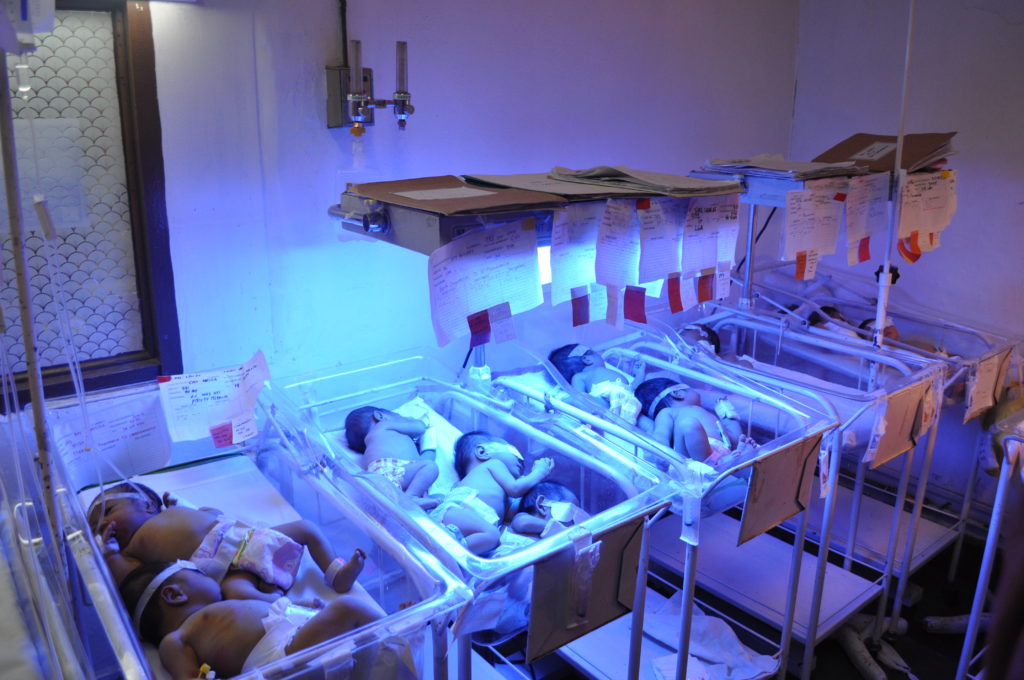
Jaundiced newborns requiring phototherapy in Vietnam
While it is rare for a child to die from dehydration caused by exclusive breastfeeding, it is not rare to experience brain-threatening complications that require hospitalization. The reason why these hospitalizations occur is because mothers are taught that insufficient breast milk is rare and therefore the need for supplementation is rare, which even Dr. Alison Stuebe of the Academy of Breastfeeding Medicine admits in her own editorial is necessary in as many as 1 in 7 babies. Furthermore, their own jaundice protocol says that 10-18% of U.S. exclusively breastfed newborns experience starvation jaundice from insufficient milk intake, which require extended or repeat hospitalization for phototherapy to prevent or limit brain injury. The scientific literature has shown by the time a child needs phototherapy, they already have markers of brain injury leaking into their blood.
The latest data on rates of hypoglycemia in healthy, term exclusively breastfed newborns showed that 10% experience levels low enough (<40 mg/dL) to cause long-term cognitive declines by 6 hours of life. The scientific literature has also shown that by the time they reach a glucose of 40 mg/dL, they are also leaking markers of brain injury in the blood. Yet few EBF healthy, term newborns are monitored for hypoglycemia.
In addition, you misquote the Oddie study on hypernatremic dehydration and represent dehydration as rare and when dehydration as defined by weight loss of greater than 10% is actually common, occurring to 14% of newborns in the largest study done to date. In other countries, they have been reported as high as 25%. Lastly, while the rates of laboratory-diagnosed hypernatremic dehydration are reported as rare, the number of exclusively breastfed newborns who experience it are likely to be far greater since EBF newborns do not get blood work unless their starvation is detected. If you don’t look for it, then it appears rare. However, the data on neonatal hypernatremia shows that it occurs as early as 7% weight loss, which happens to half of all exclusively breastfed newborns. This is not surprising since the blood volume of a child is 8.5% of their body weight, a weight loss of > 7% is likely to result in severe dehydration synonymous with hypernatremia.
Sadly, hospitalizations for jaundice primarily caused by underfeeding from the Baby-Friendly protocol are common. In a paper published by a Baby-Friendly Hospital system, they revealed that 5.7-13% of all the babies born required hospitalization for phototherapy. Furthermore 12-20% experienced levels of hyperbilirubinemia that have been associated with multiple developmental and neurological disabilities.
The Baby-Friendly Hospital Initiative is 25 years old. It has no data on safety. Exclusively breastfeeding one’s newborn before having a full milk supply comes with an infinite-fold risk of underfeeding and excessive weight-loss, since recent data shows no supplemented or formula-fed newborn is at risk. It relies on the unproven notion that newborn babies can fast for 3 days without irreversible harm to the brain and vital organs. It operates with no knowledge of the number of calories colostrum can provide nor the true caloric requirements of newborns. Finally, it allows newborn babies to cry out of hunger for hours to days without sleep while withholding supplementation in the faulty belief that the torture of hunger they experience is worth the benefits of breastfeeding.
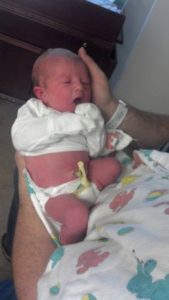
Landon crying and nursing continuously by the second day of life
So as you see, hospitalizations and complications from the exclusive breastfeeding guidelines are not rare and are in fact the leading causes of newborn hospitalization in the world. So not only are you falsifying that complications are rare in order to convince mothers to trust you with their children, you are hiding them at the risk of causing harm to a child that is severe and irreversible. While every mother is informed of the risks of formula, they are not informed of the risks of starvation; and the risks of starvation far exceed the risks of properly-prepared formula. Sadly, the only rare thing in breastfeeding is honesty in its promotion.
Lies killed Landon Johnson and lies are hospitalizing exclusively breastfed babies every single day.
#babyfriendly #fedisbest
